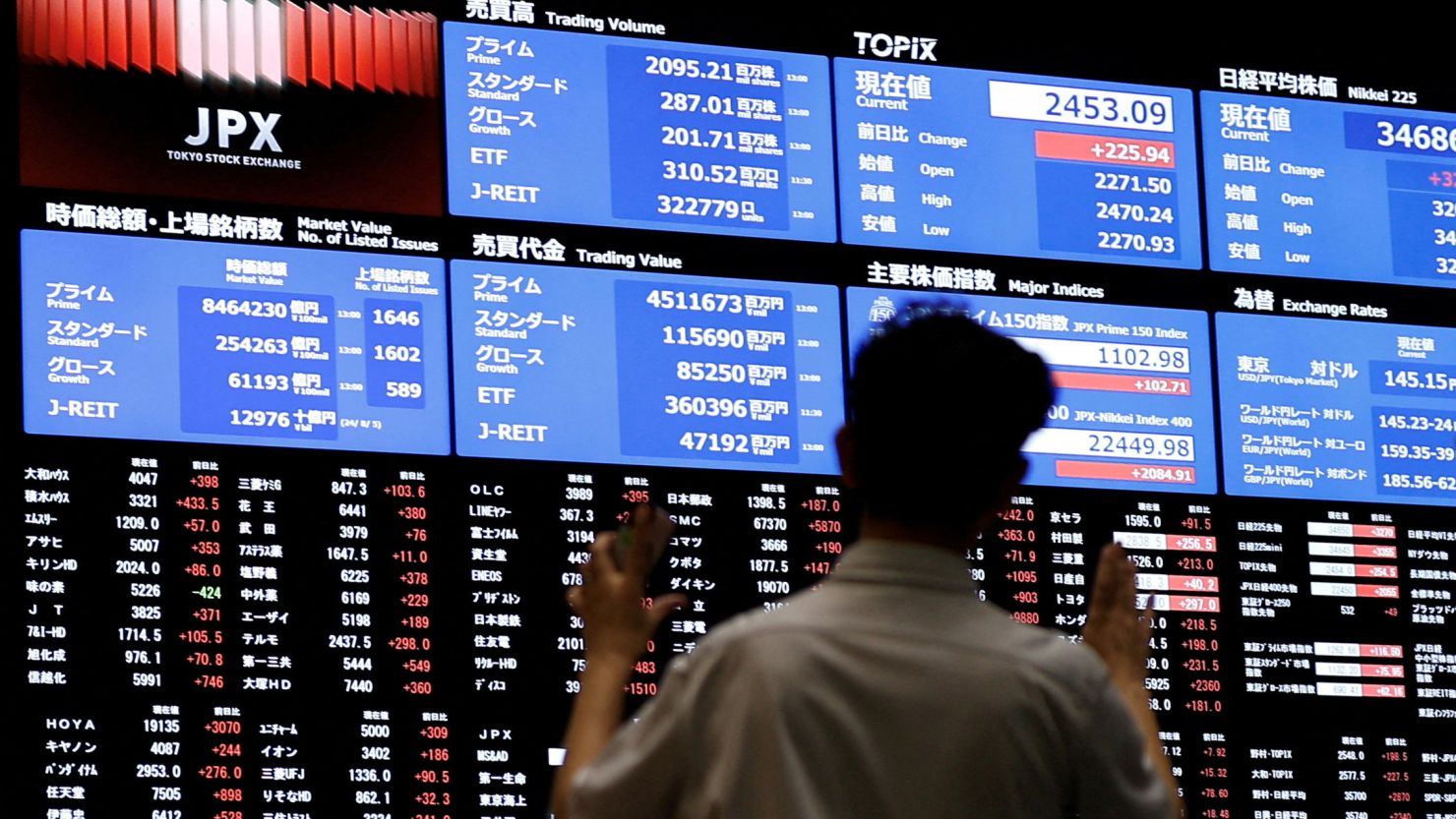Markets across the Asia-Pacific region posted mixed results Thursday, as a glimmer of optimism over potential progress in U.S.-China trade relations contrasted with weaker domestic economic data and shifting policy signals from Tokyo.
Trade Hopes Buoy Japan and Australia
Japan’s Nikkei 225 led regional gains, climbing more than 1%, extending a rally that began earlier in the week. The broader Topix index rose 0.81%, as investor sentiment improved on signs that tensions between Washington and Beijing may be cooling.
Australia’s S&P/ASX 200 also advanced 0.56%, riding momentum from Wall Street’s recent rally and resilience in key sectors like mining and financials.
South Korea Lags as GDP Misses Expectations
In contrast, South Korean markets lost ground. The benchmark Kospi slipped 0.47%, while the tech-heavy Kosdaq edged down 0.15%. Investor caution intensified after preliminary data showed the country’s economy unexpectedly contracted by 0.1% in the first quarter of 2025—below expectations for modest growth.
The surprise dip, fueled in part by sluggish exports and a softer consumer sector, raised concerns about the broader regional economic outlook. South Korea’s central bank may now face added pressure to consider stimulus measures.
China Markets Flat Despite Tariff Softening Signals
Mainland China’s CSI 300 index traded flat, while Hong Kong’s Hang Seng Index fell 0.29%, amid lingering concerns about domestic growth and regulatory uncertainty. While comments from U.S. President Donald Trump on reducing tariffs appeared to ease geopolitical jitters, Chinese equities remained under pressure due to weak earnings and limited policy clarity.
Trump’s latest remarks included a rare conciliatory tone, signaling a potential softening of the 145% tariff on Chinese imports, calling it “very high” and suggesting it could “come down substantially.”
Automaker Stocks React to U.S. Trade Signals
Automotive shares reflected investor response to Trump’s suggestion that exemptions for certain car manufacturers may be on the table. Japanese automakers were among the strongest performers: Toyota jumped 3.49%, Nissan rose 2.44%, and Mazda and Mitsubishi each gained about 3%.
South Korean auto giants Hyundai and Kia saw mild declines of 0.37% and 0.67%, respectively, amid concerns that any tariff relief may be unevenly applied. Chinese electric vehicle makers fared worse, with Li Auto tumbling over 3%, BYD dropping nearly 2%, and Xpeng slipping 1.76%.
Wall Street’s Rally Offers Regional Lift
The positive sentiment in parts of Asia followed strong overnight gains on Wall Street, where all three major U.S. indices posted their second consecutive day of gains. The Nasdaq Composite surged 2.50%, driven by rebounds in tech stocks, while the Dow and S&P 500 also closed higher. Futures trading suggested a more muted session ahead, with Dow futures slightly down and the S&P and Nasdaq barely positive.
Tokyo Stock Exchange Pushes for Lower Investment Thresholds
In a notable domestic development, Japan’s Tokyo Stock Exchange (TSE) announced new guidelines aimed at making stock ownership more accessible. The exchange is encouraging listed firms to lower their minimum investment thresholds from the current cap of 500,000 yen (around $3,500) to closer to 100,000 yen ($700), hoping to attract younger and smaller retail investors.
A report released Thursday by a TSE-formed expert group said the move would “create an environment that is conducive to investment for a diverse range of individuals.” It reflects Japan’s broader strategy to build a more inclusive investment culture and boost household participation in financial markets.
While market direction in the Asia-Pacific remains mixed, investor sentiment appears to be slowly stabilizing amid encouraging signs from the U.S.-China front. However, regional risks—from South Korea’s economic dip to China’s regulatory overhang—continue to temper enthusiasm.
With Japan taking steps to democratize stock investing and Washington signaling a softer stance on trade, markets may find more clarity in the weeks ahead—assuming macroeconomic headwinds remain contained.






